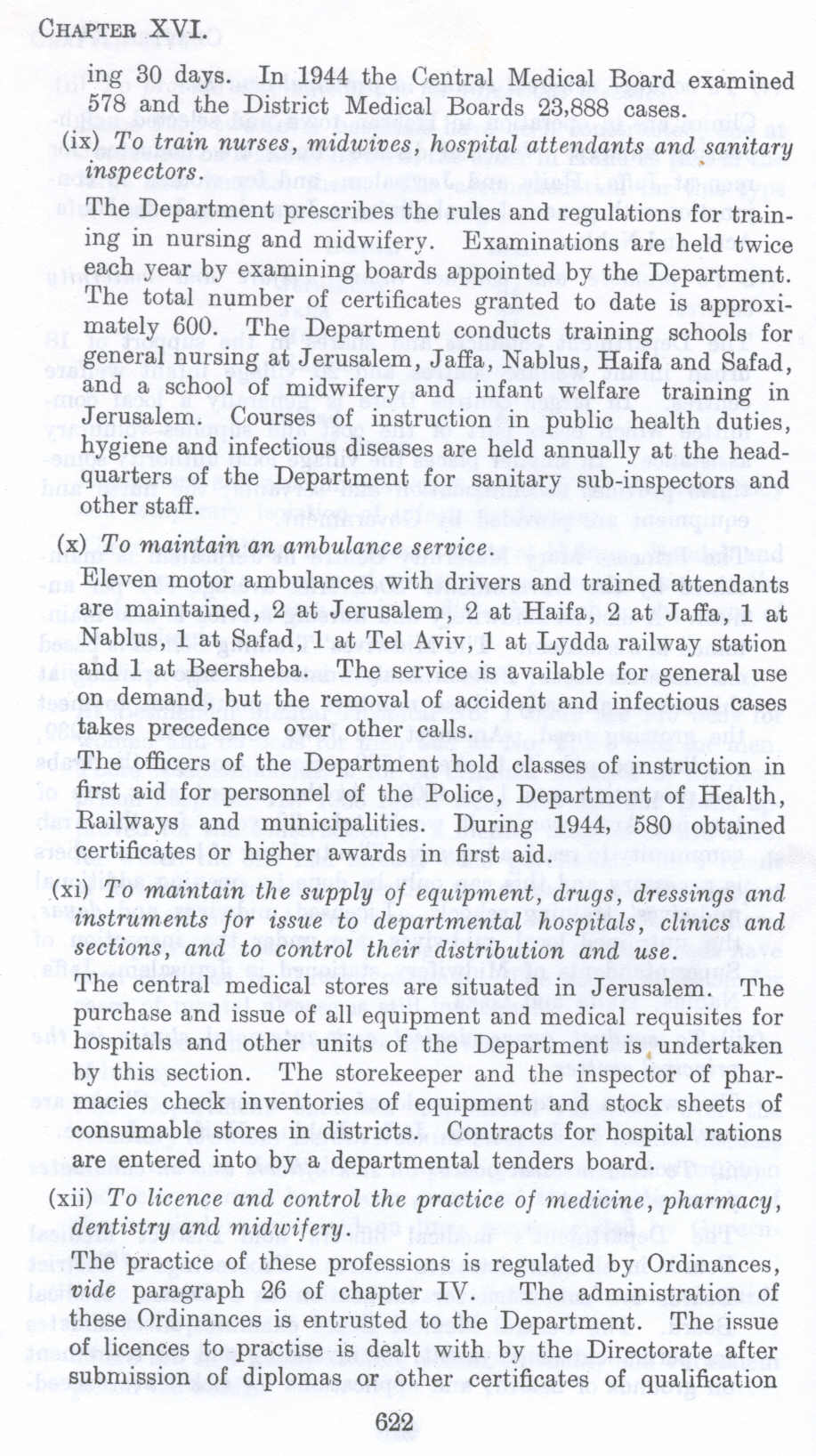| Prev | Next |  |
| Prev | Next |
| PalestineRemembered | About Us | Oral History | العربية | |
| Pictures | Zionist FAQs | Haavara | Maps | |
| Search |
| Camps |
| Districts |
| Acre |
| Baysan |
| Beersheba |
| Bethlehem |
| Gaza |
| Haifa |
| Hebron |
| Jaffa |
| Jericho |
| Jerusalem |
| Jinin |
| Nablus |
| Nazareth |
| Ramallah |
| al-Ramla |
| Safad |
| Tiberias |
| Tulkarm |
| Donate |
| Contact |
| Profile |
| Videos |
British Mandate: A Survey of Palestine: Volume II - Page 622 |
Disclaimer
The above documents, article, interviews, movies, podcasts, or stories reflects solely the research and opinions of its authors. PalestineRemembered.com makes its best effort to validate its contents.


Post Your Comment
*It should be NOTED that your email address won't be shared, and all communications between members will be routed via the website's mail server.
ing 30 days. In 1944 the Central Medical Board examined 578 and the District Medical Boards 23,888 cases.
(ix) To train nurses, midwives, hospital attendants and sanitary
inspectors. •
The Department prescribes the rules and regulations for training in nursing and midwifery. Examinations are held twice each year by examining boards appointed by the Department. The total number of certificates granted to date is approximately 600. The Department conducts training schools for general nursing at Jerusalem, Jaffa, Nablus, Haifa and Safad, and a school of midwifery and infant welfare training in Jerusalem. Courses of instruction in public health duties, hygiene and infectious diseases are held annually at the headquarters of the Department for sanitary sub-inspectors and other staff.
(x) To maintain an ambulance service.
Eleven motor ambulances with drivers and trained attendants are maintained, 2 at Jerusalem, 2 at Haifa, 2 at Jaffa, 1 at Nablus, 1 at Safad, 1 at Tel Aviv, 1 at Lydda railway station and 1 at Beersheba. The service is available for general use on demand, but the removal of accident and infectious cases takes precedence over other calls.
The officers of the Department hold classes of instruction in first aid for personnel of the Police, Department of Health, Railways and municipalities. During 1944, 580 obtained certificates or higher awards in first aid.
(xi) To maintain the supply of equipment, drugs , dressings and instruments for issue to departmental hospitals, clinics and sections, and to control their distribution and use.
The central medical stores are situated in Jerusalem. The purchase and issue of all equipment and medical requisites for hospitals and other units of the Department is undertaken by this section. The storekeeper and the inspector of pharmacies check inventories of equipment and stock sheets of consumable stores in districts. Contracts for hospital rations are entered into by a departmental tenders board.
(xii) To licence and control the practice of medicine, pharmacy, dentistry and midwifery.
The practice of these professions is regulated by Ordinances, vide paragraph 26 of chapter IV. The administration of these Ordinances is entrusted to the Department. The issue of licences to practise is dealt with by the Directorate after submission of diplomas or other certificates of qualification
622